Women backing Elizabeth Warren in New Hampshire call 'electability' concerns a 'red herring'
"I'm discouraged as a supporter," one woman said.
New Hampshire voter Kristin Swan has been waiting years for Sen. Elizabeth Warren to run for president.
She first came to know Warren through the pages of "The Two-Income Trap," the then-professor's 2003 book aimed at middle class families struggling to make ends meet. Like many of Warren's New Hampshire supporters, Swan later followed Warren's Senate run in the neighboring state of Massachusetts, hoping she'd run for president in 2016.
When Warren eventually announced she would run in late 2019, Swan, a 40-year-old book editor and mother of four young children, was all-in from the start.
She wasn't alone: Swan is part of the strong base of women for Warren in New Hampshire who've followed Warren's political rise over the years from one state over, hoping they'd have a chance to support her in a presidential run from one of the nation's first early states.
But as Swan watched from the crowd as Warren made a running-entrance into her rally in Lebanon, New Hampshire, on Sunday, she was keenly aware of what her candidate was up against -- and she wondered what went wrong. That day, a CNN poll showed Warren at 9% among likely Democratic voters in New Hampshire, which is half the support she received in an October poll.
"I'm discouraged. I'm discouraged as a supporter," Swan said. "It's hard for me, maybe in my own enthusiasm, to see how other people don't see how deeply qualified she is."
Swan's daughter, Stella, stood next to her holding a drawing of Warren as Joan of Arc slipped into a protective plastic sleeve so that it would make it through the day. In the drawing, Warren wore battle armor and held her hand in the air, her leg on the "t" of the word "persist" as if she were climbing up a mountain.
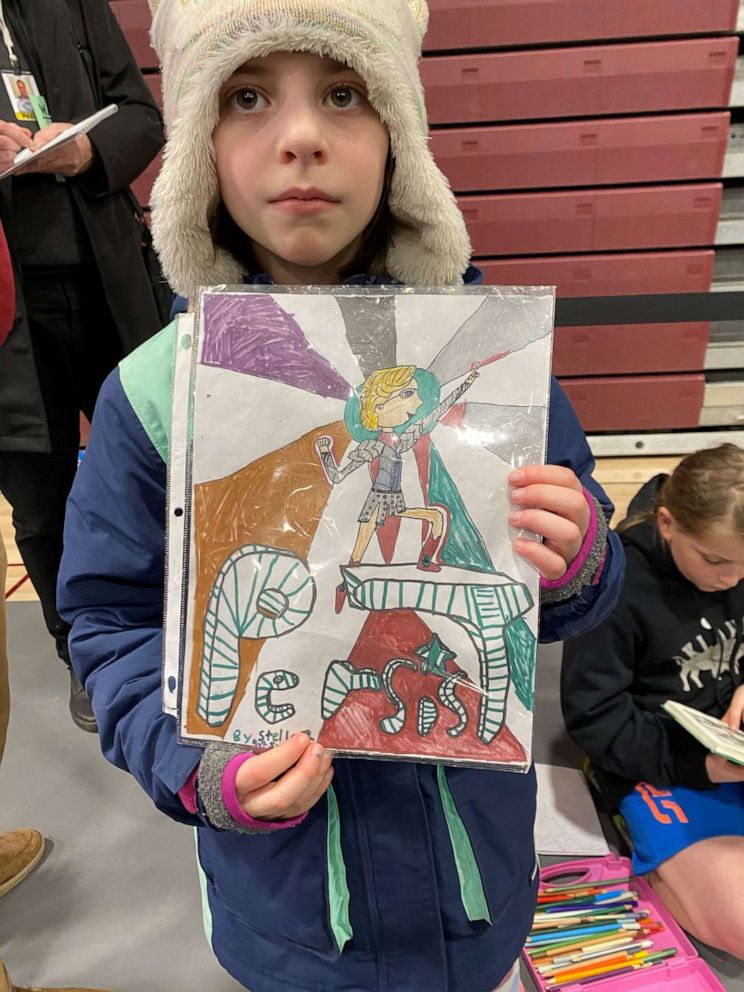
"I think there are lots of great candidates out there, but I think that she's pretty exceptional, in her demeanor, her intellect, her experience," Swan said. "So it's been hard to see. I feel like that's not obvious to everyone."
In recent weeks, particularly since the Iowa caucuses and the debate last Friday in New Hampshire, other candidates have seen a boost that Warren has lacked. Sen. Bernie Sanders of Vermont and former South Bend, Indiana, Mayor Pete Buttigieg pulled in crowds of nearly 2,000 people since arriving in New Hampshire, fresh off victories in Iowa, while Sen. Amy Klobuchar of Minnesota pulled in a 1,000-person crowd after performing well in the Friday debate.
The downturn has led pundits to question Warren's path to the nomination, particularly if she doesn't perform well in the state that has known her the longest.
It's also left her supporters in New Hampshire confused, unsure why their neighboring-state senator isn't doing better. Some voters questioned the media and raised concerns about sexism in the presidential race.
"Something new and shiny is the way we function as a society -- and Elizabeth Warren peaked so early that then maybe people's attention easily shifted away," Swan said.
But her deeper concern, she said, stems from conversations she's had with people -- and particularly women -- "who say that they love Warren and she would be their first choice if not for the ‘question of electability.'"
"That's a red herring. She's electable if you vote for her," Swan said. "It feels like we've already forgotten that Hillary Clinton won millions more votes than Donald Trump."
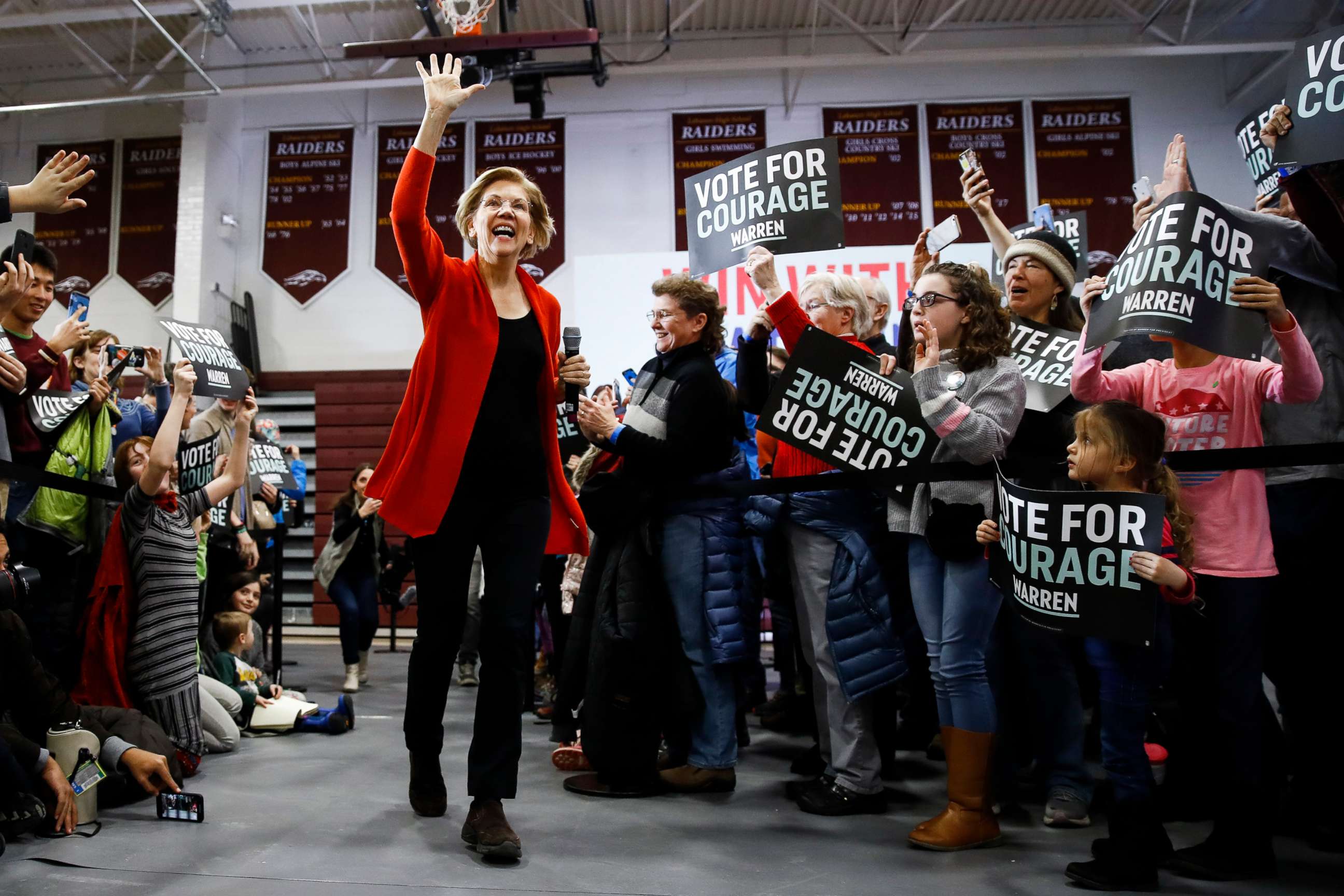
Barbara Coulter, a Hanover, New Hampshire, resident who also attended Warren's Lebanon rally Sunday, echoed the concern that Warren's fall in the polls is because she's a woman.
"I don't think she gets the attention in the press like the men do. Honestly, I mean I don't know if that has to do with being a woman or not, but I definitely feel like there's a difference about press coverage," Coulter said.
Some women, like Jean Corner, 68, have tried to take matters into their own hands, elevating women in the 2020 race on their own by vowing only to vote for a woman candidate.
"All my life since 1972, I've only voted for men. So a while ago I said I'm only gonna vote for women in the primary," said Corner, who met Warren when she dropped by the Sweet Maple Cafe in Conway, New Hampshire, on Monday morning.
Though that narrows it down to two candidates, Warren and Klobuchar, Corner said it also brings about another struggle: deciding whether a moderate or a progressive is better suited to beat President Donald Trump at a time when the stakes feel particularly high.
Klobuchar "doesn't have the far-left baggage" that she worried Warren will be saddled with in a general election because of her support for Medicare for All.
"You have to think about the whole country," she said.
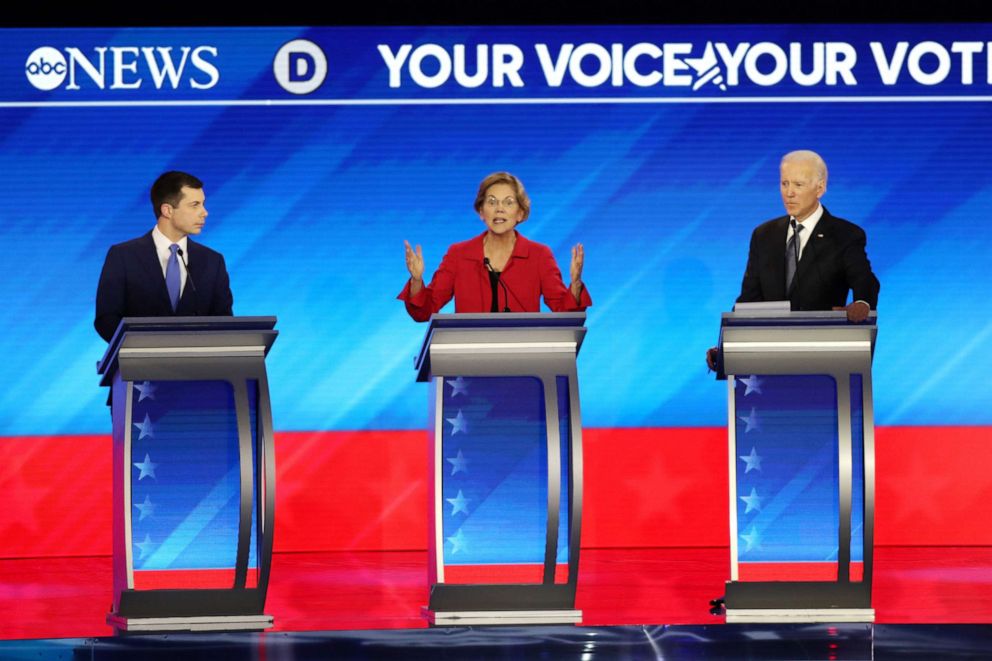
But she also felt concerned for the stakes for each woman in New Hampshire and the power of her vote here to propel the women forward to the next early state in the race.
She said it was "too bad" Klobuchar didn't do better in Iowa, which is Klobuchar's neighboring state, and acknowledged that Warren faces a lot of pressure in New Hampshire for the same reason. But she cautioned against putting too much weight on both candidates' performances in each place.
"Last time Sanders won here, and he didn't get the nomination. And it was his neighboring state. So it goes on," Corner said. Sanders won New Hampshire by around 20 points in 2016.
Ultimately, though, Corner is straddling a "strategic" vote versus a "gut" vote.
"It's hard -- do you vote for who you really want? Or you know, be strategic about your vote -- and not who you really want, but who you know strategically would do the best later in the race?" said Corner, putting her face in her hands while she tried to think through the decision.
"But I should just go with my gut and vote for who I really want, so that's what I'm gonna do," she said.
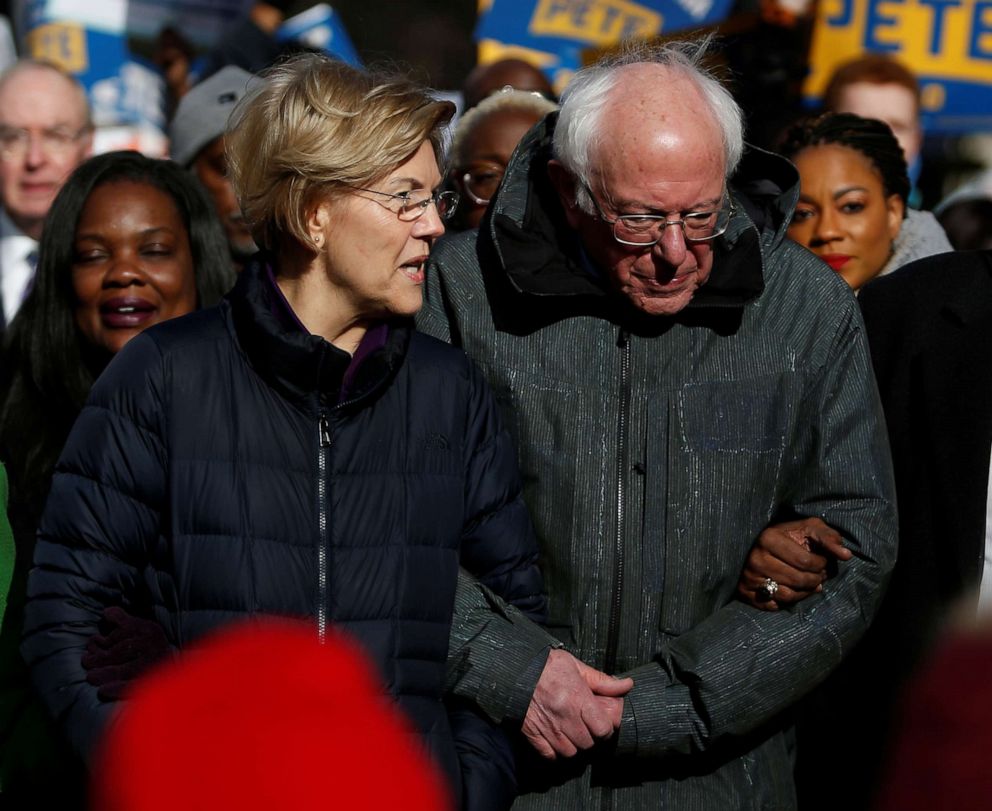
Warren, for her part, has addressed that question head-on in New Hampshire in the days leading up to the primary, aiming to ease the anxiety of New Hampshire voters who are keyed in on beating President Donald Trump.
"There are a lot of folks who are going to talk about what's not winnable, what can't be done," Warren said to cheers on Saturday in Manchester just before her campaign sent out a fresh wave of canvassers. "The way I look at this, I've been winning unwinnable fights pretty much all my life -- we persist and we win."
She also made a point to celebrate the 3-year anniversary of her feud with Senate Majority Leader Mitch McConnell, during which he infamously said she "nevertheless" "persisted" in speaking over his calls. It was a quote painted all over signs at Women's Marches.
"I've been counted down and out for much of my life -- but Mitch McConnell had it right: Nevertheless, she persisted. I can't imagine any other way of doing it," Warren told reporters Monday while boarding the press bus to answer questions between events in Rochester and Portsmouth.
At the Portsmouth rally that evening, just hours before the primary, former Democratic Speaker of the House Teri Norelli introduced Warren to the stage by telling the crowd outright, "We don't have a crystal ball."
Norelli told the crowd to stop waiting to see who is doing the best and instead focus on who you want to see in office.
"I decided [Warren] was my candidate. And then I realized, 'Whoa, she can also win,'" Norelli said.
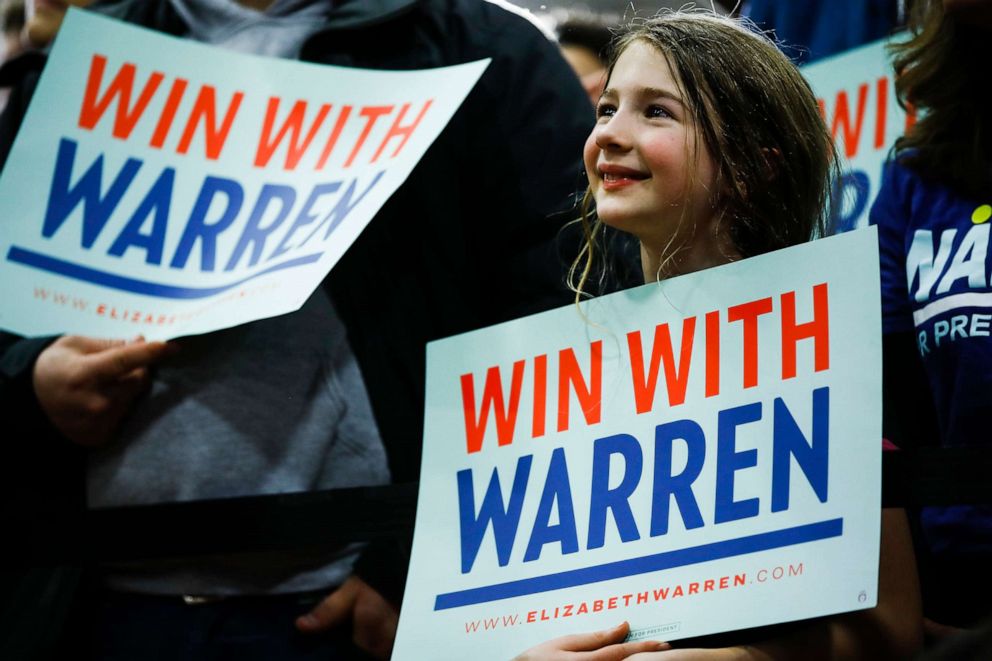
Warren, in her closing arguments to New Hampshire voters, has filled out her pitch about "winning unwinnable fights" with more personal details about the rejections she's faced in her past, laying bare the hurdles that have knocked her down before and after she entered politics.
She's talked about going to college despite advice from her mother, who told her she couldn't be a teacher and shouldn't go to college because it just wasn't her "path." She's spoken about fighting for the Consumer Finance Protection Bureau in 2011, only to be told she was a "pre-rejected nominee" to run it.
"New Hampshire, it's going to be up to you," Warren said over the weekend in Manchester. "Do you back up, or do you get in the fight? Me, I'm getting in the fight."
Asked if this stage of the race feels more personal, given her turn toward more intimate details and re-living past losses with voters from the stump, Warren said she'd come to realize that voters "have a right to know" her "heart."Asked if this stage of the race feels more personal, given her turn toward more intimate details and re-living past losses with voters from the stump, Warren said she'd come to realize that voters "have a right to know" her "heart."
"You know, it's been personal for me from the beginning. But one of the things that I realized is that voters have a right to know not just the policies, but also the heart of the person they're going to pick for president of the United States," Warren told reporters after her Portsmouth event. "So, I put out all the policies, but I also put more of my heart out for people."




